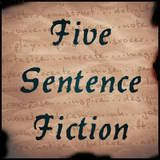Taken from the site: Top Ten Tuesday is an original
feature/weekly meme created here at The Broke and the Bookish. This
feature was created because we are particularly fond of lists here at
The Broke and the Bookish. We'd love to share our lists with other
bookish folks and would LOVE to see your top ten lists!
This week, we are to list the Top 10 books on our Spring To-Read list!
And for my list:
In a distant, timeless
place, a mysterious prophet walks the sands. At the moment of his
departure, he wishes to offer the people gifts but possesses nothing.
The people gather round, each asks a question of the heart, and the
man's wisdom is his gift. It is Gibran's gift to us, as well, for
Gibran's prophet is rivaled in his wisdom only by the founders of the
world's great religions. On the most basic topics--marriage, children,
friendship, work, pleasure--his words have a power and lucidity that in
another era would surely have provoked the description "divinely
inspired." Free of dogma, free of power structures and metaphysics,
consider these poetic, moving aphorisms a 20th-century supplement to all
sacred traditions--as millions of other readers already have. --Brian Bruya
Monogamy Songs is some
kind of new beast. Maybe it's a memoir. Or a book of prose poems. Or
maybe those "poems" are really mini-snapshots of true, horny,
heartbroken, frustrated, medicated, nervous, passionate, jealous, sweaty
domesticity. Sherl's language in this book is spiked and unguarded,
sometimes in shocking ways. It's also breathtakingly beautiful. Monogamy
Songs is the most personal book so far by this exciting young writer.
The story takes the form
of a series of letters from a senior demon, Screwtape, to his nephew, a
junior "tempter" named Wormwood, so as to advise him on methods of
securing the damnation of a British man, known only as "the Patient".
Screwtape
holds an administrative post in the bureaucracy ("Lowerarchy") of Hell,
and acts as a mentor to Wormwood, the inexperienced tempter. In the
body of the thirty-one letters which make up the book, Screwtape gives
Wormwood detailed advice on various methods of undermining faith and
promoting sin in the Patient, interspersed with observations on human
nature and Christian doctrine. Wormwood and Screwtape live in a
peculiarly morally reversed world, where individual benefit and greed
are seen as the greatest good, and neither demon is capable of
comprehending or acknowledging true human virtue when he sees it.
When eleven-year-old
Gregor follows his little sister through a grate in the laundry room of
their New York apartment, he hurtles into the dark Underland beneath the
city. There, humans live uneasily beside giant spiders, bats,
cockroaches, and rats—but the fragile peace is about to fall apart.
Gregor
wants no part of a conflict between these creepy creatures. He just
wants to find his way home. But when he discovers that a strange
prophecy foretells a role for him in the Underland's uncertain future,
he realizes it might be the only way to solve the biggest mystery of his
life. Little does he know his quest will change him and the Underland
forever.
Children of divorced
parents, sisters Sarah and Emily Grimes are observed over four decades,
and grow into two very different women.Sarah is stable and stalwart,
settling into an unhappy marriage.Emily is precocious and independent,
struggling with one unsatisfactory love affair after another.Richard
Yates's acclaimed novel is about how both women struggle to overcome
their tarnished family's past, and how both finally reach for some
semblance of renewal
Richard Yates's
unflinchingly realistic stories explore loneliness, but they don't
neglect failure, cruelty, and heartbreak. Most of the stories feature
men who have been disappointed, somehow, by their inability to fulfill
the promise of their youth.
Awe and exhilaration—along with heartbreak and mordant wit—abound in Lolita,
Nabokov's most famous and controversial novel, which tells the story of
the aging Humbert Humbert's obsessive, devouring, and doomed passion
for the nymphet Dolores Haze. Lolita is also the story of a
hypercivilized European colliding with the cheerful barbarism of postwar
America. Most of all, it is a meditation on love—love as outrage and
hallucination, madness and transformation.
Leo Tolstoy’s classic
story of doomed love is one of the most admired novels in world
literature. Generations of readers have been enthralled by his
magnificent heroine, the unhappily married Anna Karenina, and her tragic
affair with dashing Count Vronsky.
In their world frivolous
liaisons are commonplace, but Anna and Vronsky’s consuming passion makes
them a target for scorn and leads to Anna’s increasing isolation. The
heartbreaking trajectory of their relationship contrasts sharply with
the colorful swirl of friends and family members who surround them,
especially the newlyweds Kitty and Levin, who forge a touching bond as
they struggle to make a life together. Anna Karenina is a
masterpiece not only because of the unforgettable woman at its core and
the stark drama of her fate, but also because it explores and
illuminates the deepest questions about how to live a fulfilled life.
Humans and androids
crowd the raucous streets of New Beijing. A deadly plague ravages the
population. From space, a ruthless lunar people watch, waiting to make
their move. No one knows that Earth’s fate hinges on one girl. . . .
Cinder,
a gifted mechanic, is a cyborg. She’s a second-class citizen with a
mysterious past, reviled by her stepmother and blamed for her
stepsister’s illness. But when her life becomes intertwined with the
handsome Prince Kai’s, she suddenly finds herself at the center of an
intergalactic struggle, and a forbidden attraction. Caught between duty
and freedom, loyalty and betrayal, she must uncover secrets about her
past in order to protect her world’s future.
Buddha and Christ,
perhaps the two most pivotal figures in the history of humankind, each
left behind a legacy of teachings and practices that have shaped the
lives of billions of people over two millennia. If they were to meet on
the road today, what would each think of the other's spiritual views and
practices? In this classic text for spiritual seekers, Thich Nhat Hanh
explores the crossroads of compassion and holiness at which the two
traditions meet, and he reawakens our understanding of both.
--
What are some of the books on your To-Read list this Spring?
 Monday is the first day of the A to Z Challenge! This will be my first year participating and I'm very excited about it! (Last year I was a creepy lurk.)
Monday is the first day of the A to Z Challenge! This will be my first year participating and I'm very excited about it! (Last year I was a creepy lurk.) 













